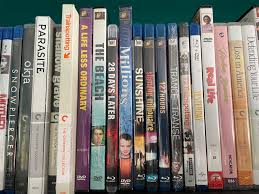
Introduction
Released in 2002, 28 Days Later is a landmark film in the horror genre that redefined the zombie apocalypse narrative. Directed by Danny Boyle, this post-apocalyptic thriller explores not only the terror of a viral outbreak but also the fragility of human society. Its relevance continues as discussions surrounding pandemics and societal collapse grow increasingly prominent.
Overview of the Film
28 Days Later follows the story of Jim, a bicycle courier who awakens from a coma to find London deserted, his city ravaged by a rabid virus that turns people into violent, zombie-like creatures. The film stands out not just for its innovative approach to the horror genre but also for its sharp social commentary. The fast-paced, infected are chillingly different from the slow-moving zombies of earlier films, bringing a new sense of urgency and terror that captivated audiences.
Cultural Impact
The film was not only a commercial success but also received critical acclaim for its narrative depth and cinematography. It sparked debates about public health, government response, and the nature of humanity in times of crisis. Critics have pointed out that the film reflects society’s fears surrounding viral outbreaks, akin to events like the COVID-19 pandemic, making its themes more relevant today than ever before.
Legacy and Influence
Following its release, 28 Days Later inspired a resurgence of interest in zombie films, influencing a new generation of filmmakers and media creators. The film’s approach to horror, combining character development and societal critique, paved the way for projects like The Walking Dead and numerous other zombie-themed content in various media. Its focus on the emotional and psychological aspects of surviving in a post-apocalyptic world continues to resonate widely.
Conclusion
28 Days Later remains a significant film in both horror and cinematic history. Its exploration of human nature, societal breakdown, and survival in extraordinary conditions resonates with audiences and critiques alike, making it a timeless commentary on human vulnerabilities. As discussions around global pandemics and societal resilience continue, the film’s legacy will likely remain relevant as a portrayal of modern fears and hopes.



